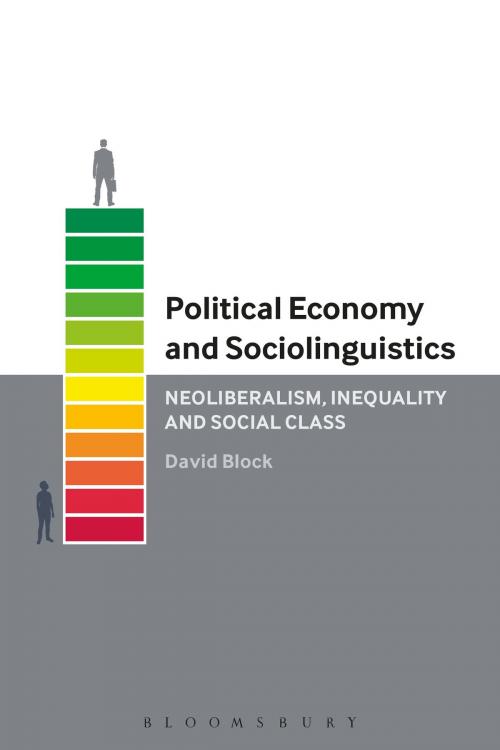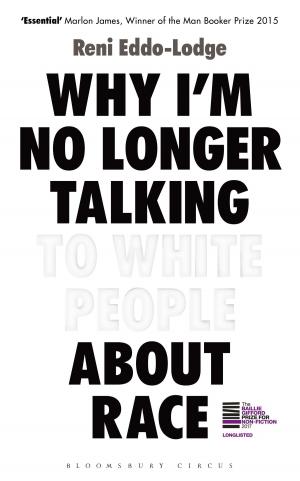Political Economy and Sociolinguistics
Neoliberalism, Inequality and Social Class
Nonfiction, Reference & Language, Language Arts, Linguistics, Social & Cultural Studies, Political Science| Author: | David Block | ISBN: | 9781474281454 |
| Publisher: | Bloomsbury Publishing | Publication: | February 8, 2018 |
| Imprint: | Bloomsbury Academic | Language: | English |
| Author: | David Block |
| ISBN: | 9781474281454 |
| Publisher: | Bloomsbury Publishing |
| Publication: | February 8, 2018 |
| Imprint: | Bloomsbury Academic |
| Language: | English |
This book explores how political economy intersects with sociolinguistics, specifically how neoliberalism, inequality and social class mediate language in society issues. After the preface, in which the author sets the scene for the content of the book, Chapter 1 is an extensive, though selective, review of sociolinguistics research which has been framed as political economic in orientation. The chapter concludes that such research generally contains little in the way of thorough and in-depth coverage of the key ideas and conceptual frameworks said to undergird it. With this consideration in mind, Chapters 2, 3 and 4 are organised around in-depth discussions of, respectively, political economy as a general disciplinary frame; neoliberalism as the variegated variety of capitalism dominant in the world today; and stratification, inequality and social class, as phenomena intrinsic to capitalism, which in the neoliberal era have come to the fore as key issues. Drawing directly on the background provide in Chapters 2-4, Chapters 5 and 6 explore two distinct political economy-informed lines of research, on the one hand, the 'neoliberal citizen', and on the other hand, 'discursive class warfare'. The book ends with an epilogue addressing issues arising around political economy in sociolinguistics.
This book explores how political economy intersects with sociolinguistics, specifically how neoliberalism, inequality and social class mediate language in society issues. After the preface, in which the author sets the scene for the content of the book, Chapter 1 is an extensive, though selective, review of sociolinguistics research which has been framed as political economic in orientation. The chapter concludes that such research generally contains little in the way of thorough and in-depth coverage of the key ideas and conceptual frameworks said to undergird it. With this consideration in mind, Chapters 2, 3 and 4 are organised around in-depth discussions of, respectively, political economy as a general disciplinary frame; neoliberalism as the variegated variety of capitalism dominant in the world today; and stratification, inequality and social class, as phenomena intrinsic to capitalism, which in the neoliberal era have come to the fore as key issues. Drawing directly on the background provide in Chapters 2-4, Chapters 5 and 6 explore two distinct political economy-informed lines of research, on the one hand, the 'neoliberal citizen', and on the other hand, 'discursive class warfare'. The book ends with an epilogue addressing issues arising around political economy in sociolinguistics.















